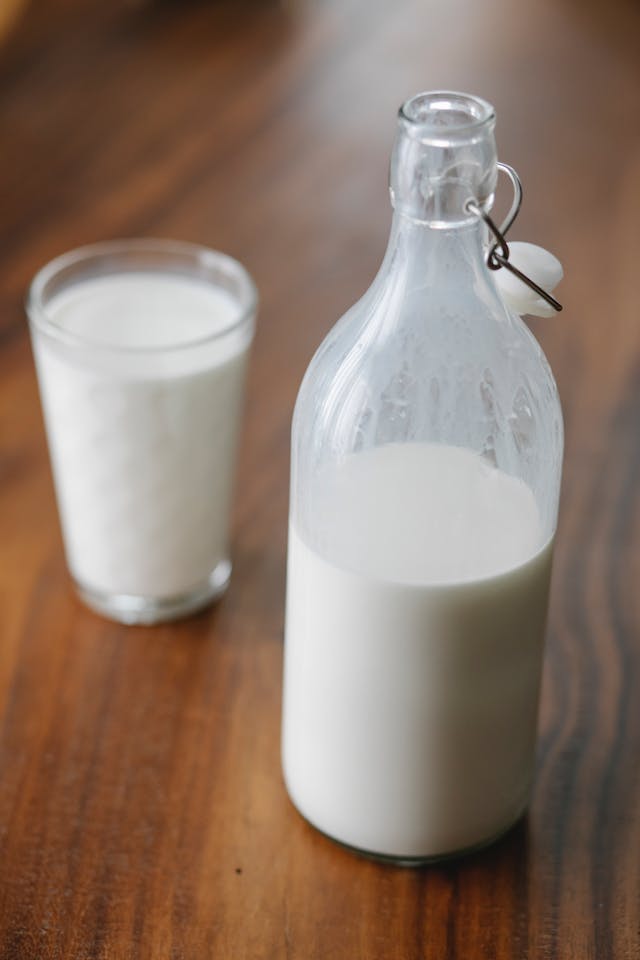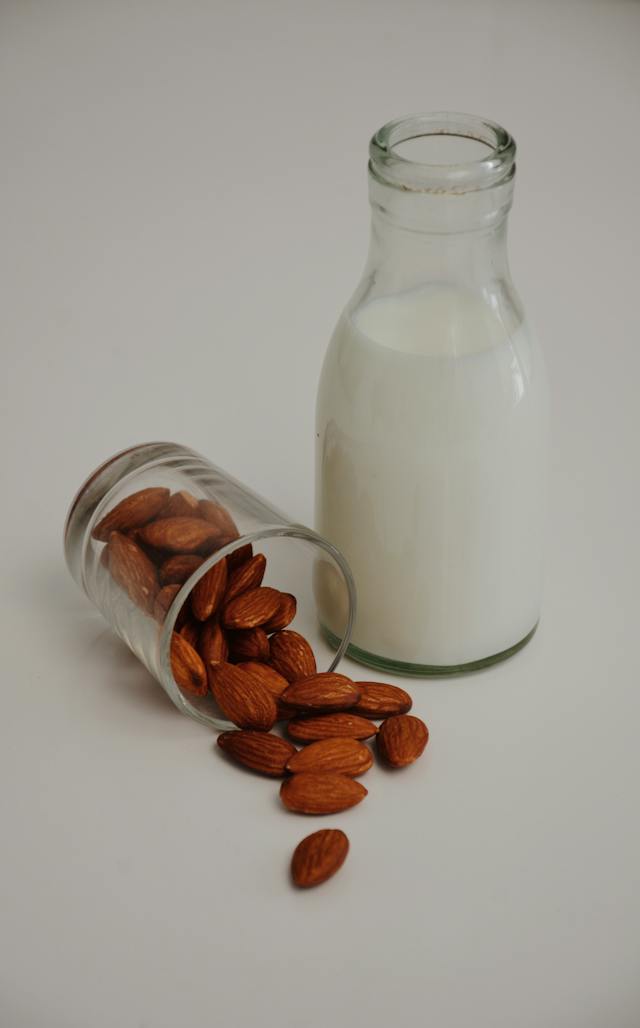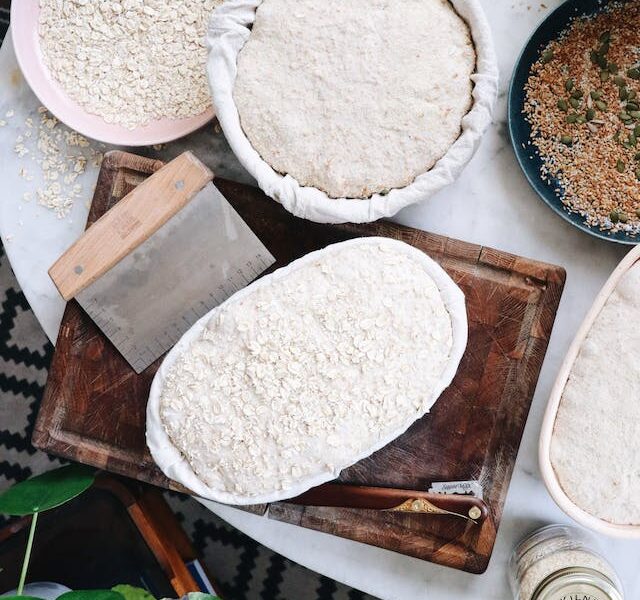As a mom, you know how important it is to fuel your body with the right nutrients. Protein is essential for repairing and building tissues, supporting a healthy immune system, and maintaining energy levels throughout the day. But with so many store-bought protein powders filled with artificial additives and high price tags, it’s hard to find a solution that fits your needs. That’s why we’ve created this easy-to-make homemade protein powder recipe specifically for moms like you.
By using simple, wholesome ingredients, you can customize your protein powder to your taste preferences and dietary requirements. Whether you’re a vegan, vegetarian, or have specific food allergies, this homemade protein powder is versatile enough to meet your needs.
Table of Contents
The importance of protein for moms
Protein is essential for everyone, including mothers, as it plays a crucial role in maintaining overall health and well-being. During pregnancy, postpartum, and while raising children, the importance of protein for mothers becomes particularly evident due to the following reasons:
Daily protein intake calculator
Fetal Development:
Protein is vital for the growth and development of the fetus during pregnancy. It is essential for the formation of organs, tissues, and muscles in the developing baby.
Maternal Health:
Protein is necessary for the health and well-being of the mother. It helps maintain and repair maternal tissues and muscles, supports the immune system, and aids in the production of enzymes and hormones.
Lactation:
If a mother chooses to breastfeed, protein is crucial for the production of breast milk. Breast milk is an important source of nutrition for infants, and protein content in breast milk is influenced by the mother’s dietary intake.
Postpartum Recovery:
After childbirth, the mother’s body undergoes significant changes, and protein is essential for the recovery process. It helps repair tissues, including those in the abdominal area and the pelvic floor, which may have been stretched or damaged during pregnancy and childbirth.
Energy and Weight Management:
Protein can provide sustained energy, which is important for mothers who often have demanding and busy schedules. It also contributes to feelings of fullness, which can aid in weight management and appetite control.
Immune Function:
A strong immune system is essential for both the mother and the child. Protein is necessary for the production of antibodies and other immune system components that help protect against infections and illnesses.
Hair, Skin, and Nails:
Protein is a building block for healthy hair, skin, and nails. Mothers can experience changes in their hair and skin during and after pregnancy, and adequate protein intake can help support their appearance.
Muscle Maintenance:
Protein is essential for the maintenance and repair of muscles. It can be particularly important for mothers who want to stay physically active and maintain muscle strength to support their daily activities and childcare responsibilities.
It’s important for mothers to maintain a balanced and varied diet to ensure they are getting an adequate amount of protein, along with other essential nutrients
Benefits of homemade protein powder
Homemade protein powder can have several benefits compared to commercial protein powders. Making your own protein powder allows you to have more control over the ingredients, flavors, and overall nutritional content. Here are some of the benefits of homemade protein powder:
Ingredient Control:
When you make your own protein powder, you have full control over the ingredients you use. This means you can select high-quality, natural, and organic ingredients, and avoid artificial additives, preservatives, and fillers that are often found in commercial protein powders.

12 foods to avoid while breastfeeding
Customization:
Homemade protein powder allows you to customize the blend to suit your specific dietary needs and preferences. You can choose the protein source, such as whey, casein, pea, hemp, or rice protein, and adjust the ratio of different ingredients to achieve the desired taste and nutritional profile.
Allergen-Friendly:
For individuals with food allergies or sensitivities, homemade protein powder can be a safer option. You can select ingredients that are free from common allergens like dairy, soy, or gluten.
Freshness:
Homemade protein powder is typically fresher than pre-packed options, which can sit on store shelves for extended periods. Freshly ground ingredients can retain their nutritional value better.
Cost-Effective:
In some cases, making your own protein powder can be more cost-effective than buying commercial options. This is especially true if you buy ingredients in bulk or already have some of the components at home.
Flavor and Taste:
Homemade protein powder allows you to experiment with flavors and add-ins like cocoa powder, vanilla extract, cinnamon, or sweeteners of your choice to create a taste that suits your preferences.
Nutrient Variety:
You can add various nutrient-rich ingredients to your homemade protein powder, such as chia seeds, flax-seeds, greens powders, or super food supplements, to boost the nutritional content and get a wider array of vitamins and minerals.
What are the healthy meals for pregnancy (Breakfast, Lunch and Dinner)
Transparency:
Making your own protein powder ensures transparency in what you are consuming. You know exactly what goes into your protein powder, and there are no hidden or undisclosed ingredients.
Reduced Waste:
By making your own protein powder, you can reduce packaging waste associated with store-bought protein powders. This is more environmentally friendly.
Recipes for homemade protein powder
Protein Powder Recipe -1
Ingredients:
- Chia seeds – ¼ Cup
- Flax seeds – ¼ cup
- Pumpkin seeds – ¼ cups
- Sunflower seeds – ¼ cups
- Almonds – ½ cup
- Walnuts – ¼ cups
- Oats – ½ cups
- Roasted channa – ½ cup
- Stevia or any sweetener of choice – ¼ to ½ cup as per taste
Method :
- Dry Roast all the ingredients separately one by one and let them cool
- Mix all the roasted ingredients in a jar to blend them finely like a powder
- Mix Sweetener and blend again if needed.
- Now Keep the powder in an airtight container to keep it fresh for a long time and use it as required in smoothies or other recipes.
Protein Powder Recipe -2
Ingredients:
- Chia seeds – ¼ Cup
- Flax seeds – ¼ cup
- Pumpkin seeds – ¼ cups
- Sunflower seeds – ¼ cups
- Almonds – ½ cup
- Walnuts – ¼ cup
- Cashew – ½ cup
- Pistachio – ½ cup
- Milk powder – ½ cup
- Oats – ½ cups
- Roasted chana – ½ cup
- Stevia or any sweetener of choice – ¼ to ½ cup as per taste
Method :
- Dry Roast all the ingredients separately one by one and let them cool
- Mix all the roasted ingredients in a jar to blend them finely like a powder
- Mix Sweetener and blend again if needed.
- Mix milk powder at the end and home made protein powder is ready to use.
- Now Keep the powder in an airtight container to keep it fresh for a long time and use it as required in smoothies or other recipes.
21 foods to avoid during pregnancy – What not to eat
Additional Tips
To add the variation and flavors in your home made protein powder you can add some other ingredients like cocoa powder, dry dates powder, vanilla powder or any other things like peanuts etc, to give it a different taste as well.

Some optional ingredients which you can add in any of the above recipe
- Optional: sweetener (e.g., stevia, monk fruit, or erythritol)
- Optional: flavorings (e.g., cocoa powder, vanilla extract)
- Optional: nut butter (e.g., almond or peanut butter)
- Optional: greens powder (e.g., spirulina or wheat grass)
- Optional: super food supplements (e.g., maca powder or acai berry powder)
- Any other Protein source(s) of your choice (e.g., whey, casein, pea, hemp, brown rice, or a combination)
Tips for storing homemade protein powder
Storing homemade protein powder properly is essential to maintain its freshness and prevent spoilage. Here are some tips for storing homemade protein powder:
- Transfer your homemade protein powder into an airtight container, such as a glass jar, plastic container, or a resealable bag.
- Protein powder is best stored in a cool, dry place, away from direct sunlight and moisture. Avoid areas with temperature fluctuations. The pantry or a kitchen cupboard is usually a suitable location.
- Exposure to light can cause protein powder to degrade over time. Keep the container in a dark place or use an opaque container to protect the contents from light.
- Moisture can lead to clumping and spoilage. If your kitchen is particularly humid, consider adding a desiccant packet or moisture-absorbing silica gel to the container to help keep the contents dry.
- After each use, make sure the container is tightly sealed to prevent air from entering. Moisture and oxygen can lead to protein powder degradation and spoilage.
- While not usually necessary, you can refrigerate or freeze your homemade protein powder if you live in a very humid environment or plan to store it for an extended period.





